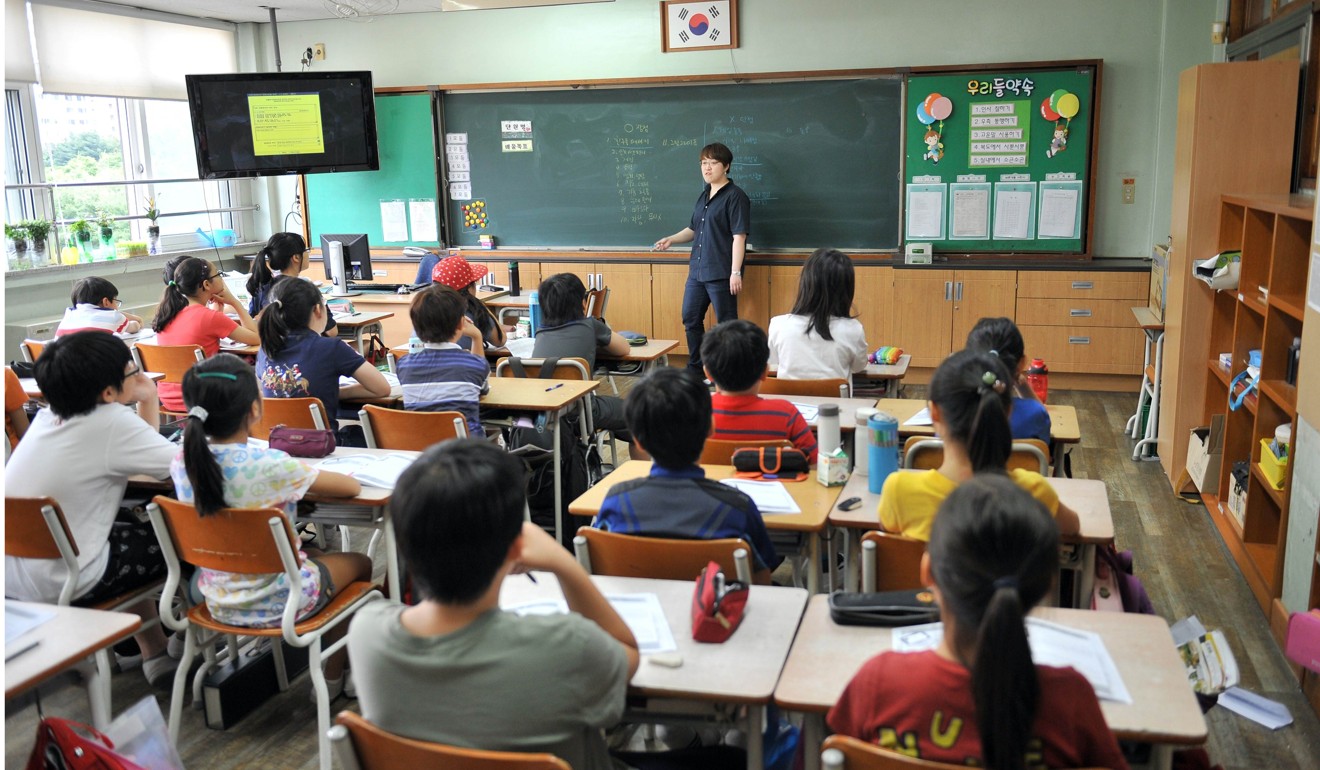
To combat screen addiction, Hong Kong schools should ban mobile phones
Luisa Tam says it’s high time for students – and their parents – to undergo digital detox
Have you ever turned your mobile phone off for 24 hours and seen the difference it made to your day? I did, and the feeling was undeniably uplifting. I felt totally free and relaxed and had so much time on my hands.
But given how attached most people are to their phones, I think many would find it hard to make that first step of giving up their device for an extended period of time. The thought of leaving one’s mobile phone off for an entire day would almost certainly make most people panic. Now, imagine applying the rule to schools.
In France, that’s exactly what students will have to do. From the next school year in September, a new law will prohibit students aged three to 15 from using mobile phones in school. It’s a voluntary initiative for schools with students older than 15.
Furthermore, students won’t be allowed to use their computers or tablets either unless it’s for educational purposes or during extracurricular activities. Students with disabilities who need such electronic devices will be exempt.
Enough of Hong Kong’s mobile phone zombie menaces
The latest rule is an extension to a law introduced in 2010 that banned smartphone use in class; it goes further by prohibiting their use throughout the school day, including during breaks and mealtimes.
The French may be on to something, as at least a couple of studies have proved the negative impact of mobile phone use in schools. One by the Journal for the Association of Consumer Research found that college students who left their mobile phones near them in class (or even in their bags on silent mode) did worse in tests than those who didn’t have their phones nearby.
Another study conducted by scientists from Korea University found that the brains of young people who used smartphones or the internet excessively underwent chemical changes, and these changes correlated significantly to diagnoses of addiction, depression, anxiety, insomnia and impulsivity. The results also showed that smartphone screen addiction negatively affected their daily routines, social life, productivity, sleeping patterns and emotions.

Hong Kong should follow suit, given that the city’s mobile subscriber base has reached saturation point, with a population penetration of 95 per cent, which means every Hongkonger – excluding babies – has a mobile phone.
Many Hong Kong parents are too reliant on their mobile phones when it comes to monitoring their children’s whereabouts and movements – a new form of digital parenting. Shockingly, it’s not uncommon to see kindergarten kids use mobile phones in Hong Kong. Many parents often employ electronic devices such as smartphones or tablets as a form of distraction to occupy their children so as to free themselves up to do other things, most likely to allow them time on their own electronic devices.
Hong Kong toddlers given electronic devices as ‘e-pacifiers’
A mobile phone ban is currently not compulsory in Hong Kong, but some schools have chosen to implement this rule.
One school in Ma On Shan enacted such a ban in 2014 and got into trouble with some students and parents, who protested that it was unreasonable and intrusive – teachers had searched students’ belongings to enforce the rule.
The primary purpose of the ban in France is to combat screen addiction, because young people are becoming far too dependent on smartphones. Another important long-term goal is to help students to focus in school.

If schools or our government don’t do anything and leave the control of mobile phone use to parents or individuals, the addiction problem will get worse because most parents themselves are far too dependent on their devices and don’t see a problem or the need to wean their children or themselves off their use.
In Britain, some schools have completely banned mobile phones, while others have different degrees of restrictions. In most countries, the decision on whether to ban mobile phone use is usually left to the school.
In terms of determination to combat screen addiction, France is unique because it has even banned texting in cars; this even applies to drivers who have pulled over to the side of the road to text.
Chinese school hammers home message that cell phones aren’t allowed
Something we can learn from the French government is their determination to combat the so-called “info-obesity” that afflicts not only adults but also our young ones.
Most Hongkongers are already stressed by the always-on work attitude that makes them effectively on standby 24/7 or take their work home due to the city’s non-stop competitive work culture. This leads to burnout and serious physical and mental health problems. We don’t need to expose our children to such a stressful lifestyle, and we must teach them how to disconnect as often as possible.
Banning mobile phones and e-devices in schools is a good start. Schools provide safe learning environments that have students’ best interests at heart. They should have adequate facilities to cater to the general needs of students during their school days and hence there is no need for personal mobiles and other e-devices on-site.
In case of an emergency, parents can communicate with their children through the school. In exceptional cases, where mobile devices are needed by individual students, the school may exercise discretion accordingly.
New iPhone and Android tools to fight phone addiction
When a parent sends their child to a school, they automatically delegate to the institution, its principal and teachers, some of their authority. So they should trust the school to implement its rules in a reasonable manner, as long as they have the child’s interest in mind.
Meanwhile, children should be spending as much time as possible learning, interacting with other children and having as much fun as possible in the real world instead of staying alone, focusing on their e-devices.
It sounds like a big ask, but start with spending at least a couple of hours without your phone, then add a few more hours each day. They say a good habit takes 28 continuous days to implement, so set yourself your own digital detox challenge for a month, so that you can set a good example for your children.
Luisa Tam is a senior editor at the Post

